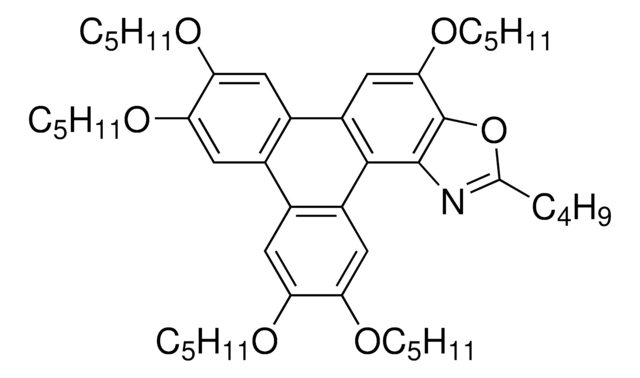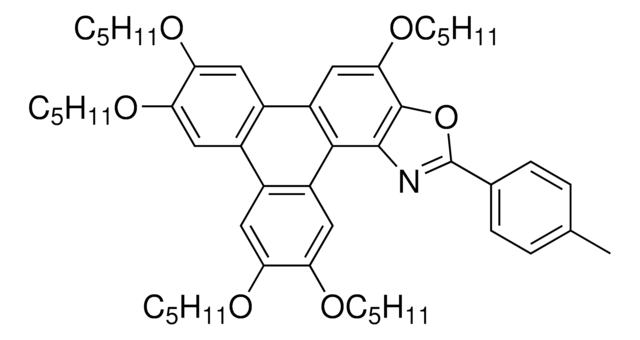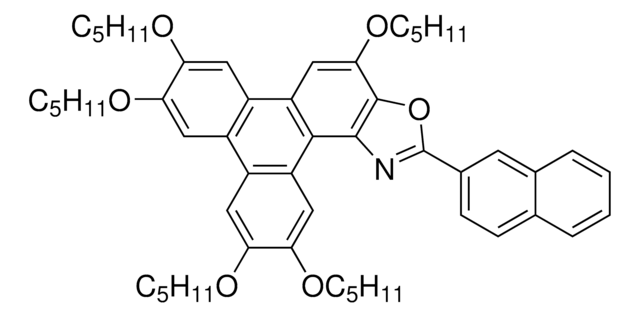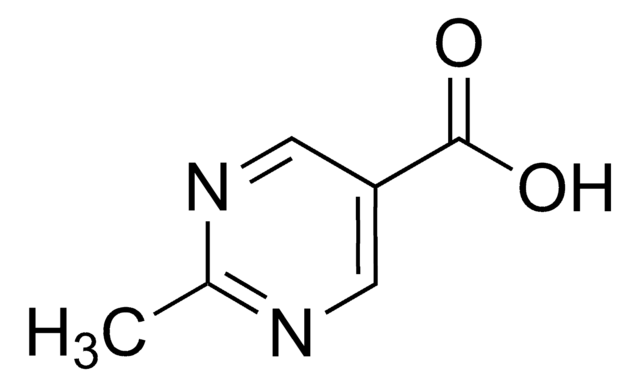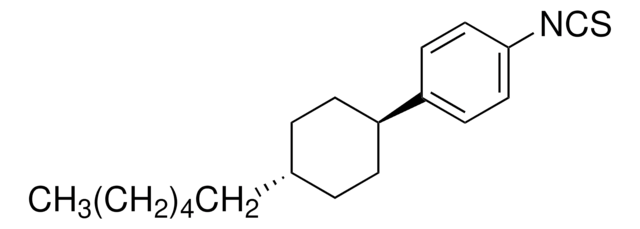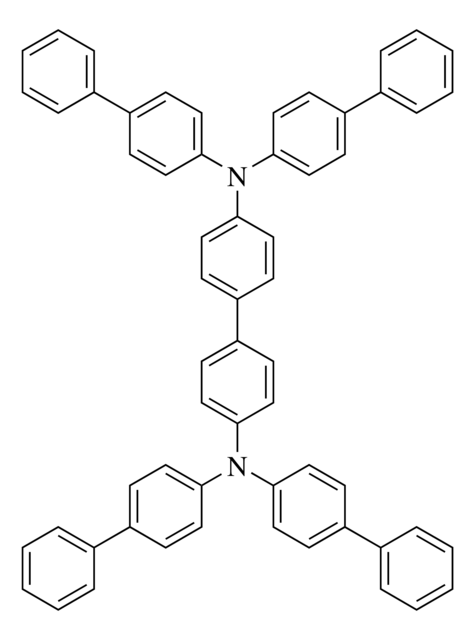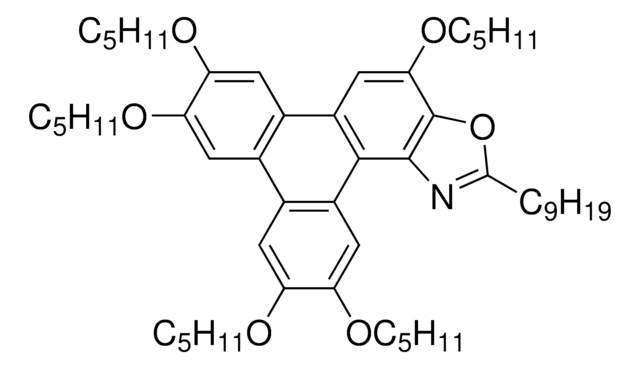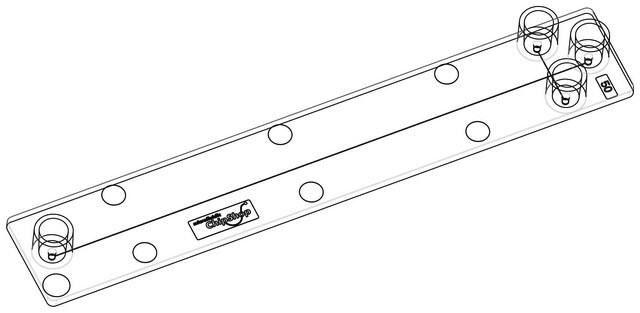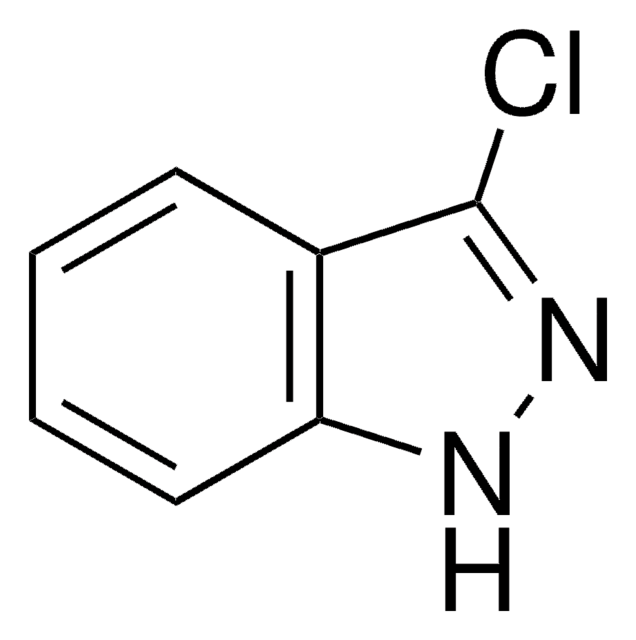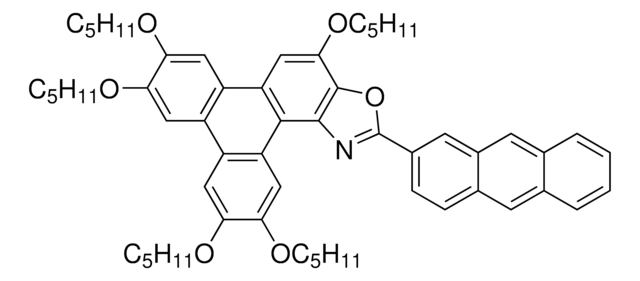923036
TpOx-p-BiPh
Sinônimo(s):
8-([1,1′-Biphenyl]-4-yl)-2,3,6,11,12-pentakis(pentyloxy)triphenyleno[1,2-d]oxazole
Faça loginpara ver os preços organizacionais e de contrato
About This Item
Fórmula empírica (Notação de Hill):
C56H69NO6
Número CAS:
Peso molecular:
852.15
Número MDL:
Código UNSPSC:
12352200
NACRES:
NA.23
Produtos recomendados
temperatura de armazenamento
−20°C
Nível de qualidade
Descrição geral
TpOx-p-BiPh is a UV excitable fluorescent material with a polycyclic aromatic donor-acceptor structure where the triphenoxazole core acts as a donor and the aromatic group on the two position of the oxazole (4-phenyl-phenyl) act as the acceptor group. The push-pull, donor-acceptor, structure facilitates intramolecular charge transfer in the excited state that results in a 220 nm emission Stokes Shift. This oxazole is also a photo-conducting Discotic Liquid Crystalline (DLC) material with mesophase transition onset temperature of 123 °C. It is designed for 355 nm and 405 nm excitation with emission at 490 nm with quantum yield of 0.61, high thermal, chemical and photostability. This luminescent compound has potential uses in fluorescent dye staining, organic electronic and photonics, and imaging applications.
Aplicação
Fluorescent materials have a range of unique properties that allows for potential use in a range of applications:
- Fluorescent dye staining
- Organic semiconductor for organic electronic and photonic applications
- Multi-photon microscopy
Armazenamento e estabilidade
Store under nitrogen in the dark in the freezer (below 8 Celsius).
Código de classe de armazenamento
11 - Combustible Solids
Classe de risco de água (WGK)
WGK 3
Escolha uma das versões mais recentes:
Certificados de análise (COA)
Lot/Batch Number
It looks like we've run into a problem, but you can still download Certificates of Analysis from our Documentos section.
Se precisar de ajuda, entre em contato Atendimento ao cliente
Já possui este produto?
Encontre a documentação dos produtos que você adquiriu recentemente na biblioteca de documentos.
Nossa equipe de cientistas tem experiência em todas as áreas de pesquisa, incluindo Life Sciences, ciência de materiais, síntese química, cromatografia, química analítica e muitas outras.
Entre em contato com a assistência técnica